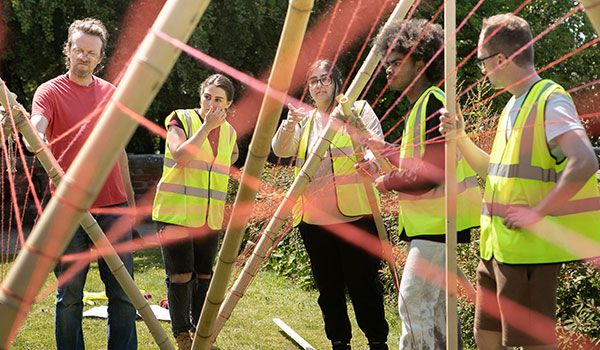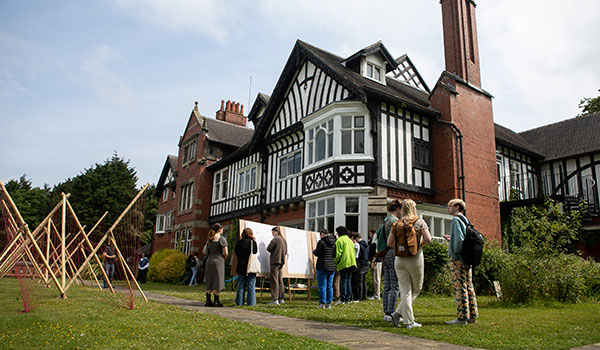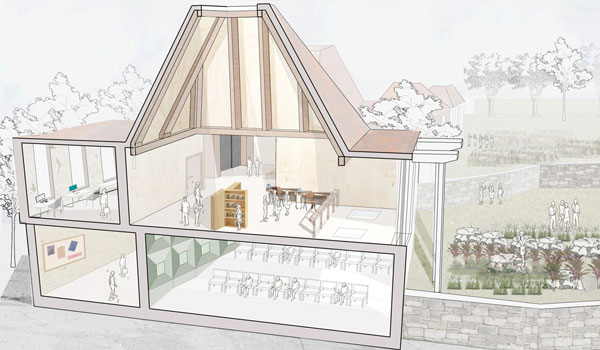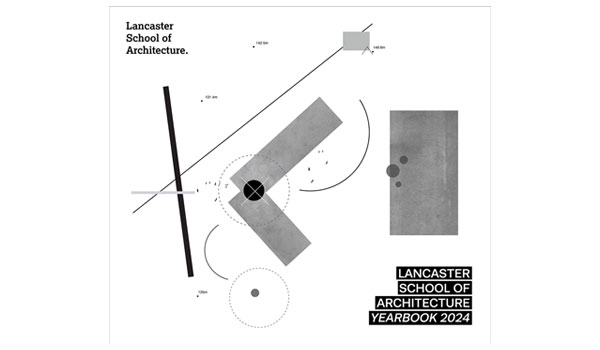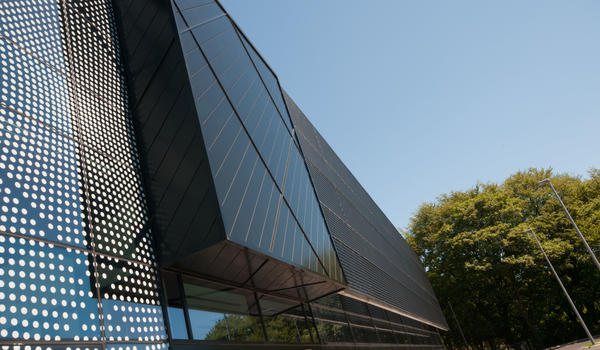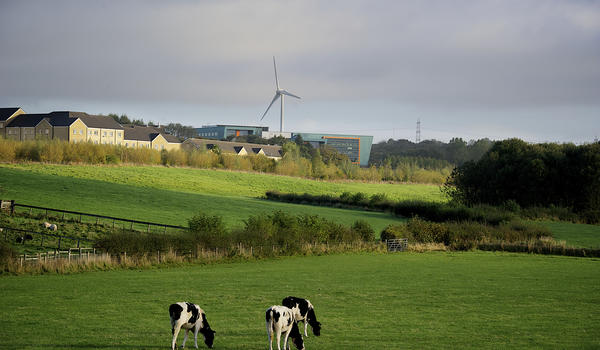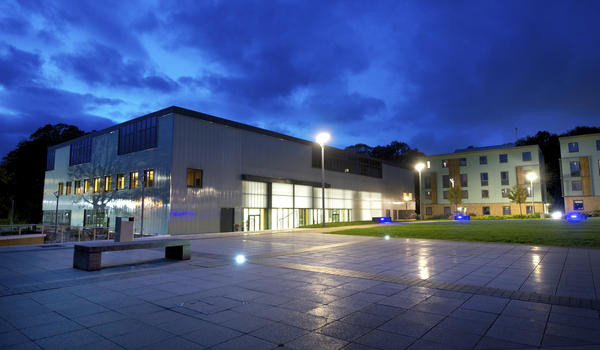* This Architecture course is prescribed by the ARB (Architects Registration Board) at Part 1 level for purposes of registration as an Architect in the UK. The ARB is currently revising its requirements for registration and is removing from its requirements the award of an undergraduate qualification in architecture across all UK schools. The intention of the ARB is that its prescription of Part 1 qualifications will cease on 31st Dec 2027 for all UK courses in Architecture. As is the case for all undergraduate UK courses in Architecture, students entering this degree after Sept 2025 will not be a prescribed ARB award due to ARB’s omission of its prescription for all undergraduate courses. This will not impact any student’s ability to complete qualification as a UK registered architect, as the ARB will accredit academic awards at master’s level (Part 2/L7) only from 2027. This course is currently, and will continue to be, subject to validation by the RIBA (Royal Institute of British Architects) at Part 1. The RIBA will continue to validate architecture qualifications at Parts 1, 2 and 3 – these are terms developed by the RIBA and its three-part validation pathway forms the typical route to RIBA Chartered Membership.

Our Values
The three concerns underpinning everything we do at Lancaster School of Architecture are Future Practice, Digital Crafts and the Climate Crisis.
Future Practice: Issues such as future cities and rapid urbanisation, changing societal and family structures and patterns of working, new materials and accelerating digitalisation necessitate a new kind of architectural professional, equipped to address such challenges.
Digital Crafts: Digital fabrication, agile production, rapid prototyping, disruptive technologies, advanced manufacturing, learning-by-doing and the maker movement: our students will not just be familiar with these ideas but will go on to become future pioneers.
Climate Emergency: Addressing the climate crisis is an imperative. Climate change will be seamlessly integrated into to everything we teach and we will strive for it to become utterly normalised so as to be part of our everyday conversation in studio, all the time.
Five additional, facilitative themes help us address these.
- First is Radical Creativity, since they can only be tackled via highly creative, innovative and socially embedded, solutions.
- Next is Ethics: we are becoming a more unequal society and so applied ethics is integrated in our professional practice.
- Furthermore, People lie at the heart of the design process and human-centred design is part of all our teaching.
- Place is important to us since our school is located next to the Lake District and we take full advantage of this uniquely exceptional setting to address issues of place, landscape and context.
- And finally, how is all of this achieved? Through integrating education and Research
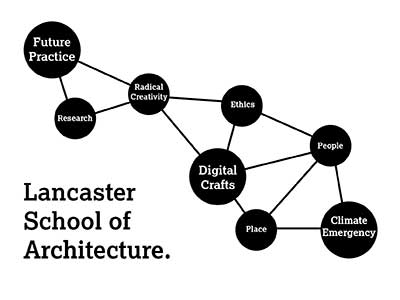
Professional Accreditation
Architects Registration Board (ARB)
The MArch Master of Architecture (Part II) is fully accredited by the ARB (Architects Registration Board).
Royal Institute of British Architects (RIBA)
Both the BA (Hons) Architecture (Part I) and the MArch Master of Architecture (Part II) are accredited by the Royal Institute of British Architects (RIBA).
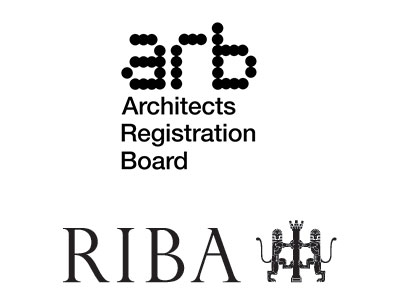
Professional Accreditation Path
Architecture in the UK is a regulated profession which means that you must be registered with the Architects Registration Board (ARB) to practise using the title ‘architect’. ARB is the statutory regulator and competent authority for architects in the UK. As a regulator it is ARB’s role to maintain the Register of Architects and to ensure that standards within the profession are consistently maintained for the benefit of the public and for architects.
There are three main routes to registration, but typically, if you are studying in the UK, you will take a three-year full time first degree in architecture (often referred to as ‘Part 1’) followed by a year of appropriate professional experience. Then a two-year full time second degree or diploma in architecture (often referred to as ‘Part 2’) followed by a further year of professional experience. Then the Professional Practice Examination – or Part 3.
You will need to have all three qualifications in order to apply for registration together with a minimum of 24 months appropriate practical training experience.
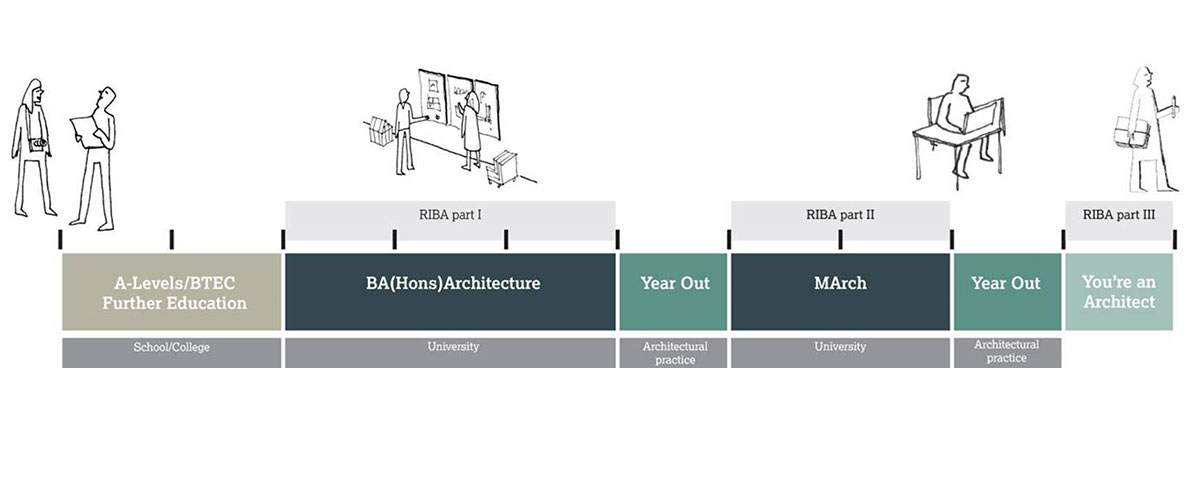
Why Choose Lancaster School of Architecture?
A place to call home
The Lancaster Institute for the Contemporary Arts (LICA) is the home of our new architecture programmes. The Institute encompasses art, design, film, theatre and architecture. LICA is housed in an award-winning building with impressive facilities and equipment. It won the BREEAM Higher Education Award and the Green Apple Environment award in 2012.

Student work
-
Annual Degree Show
Every year our final year students showcase their designs in a major degree show exhibition, which is open to the public.

-
School of Architecture Yearbook
Catalogue of student work for Lancaster School of Architecture for 2023/24.

Eden North
We are passionate about Architecture and exciting new developments in the North West of England.
Eden Project
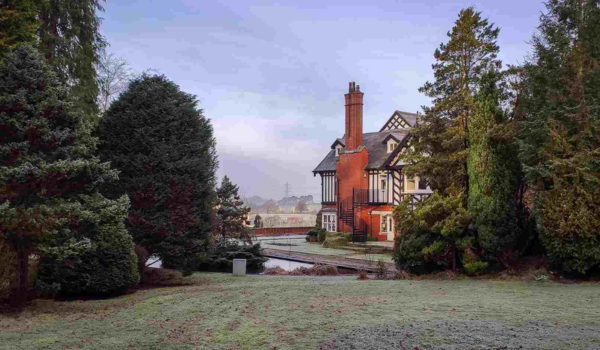
Architectural Research
Making a difference to people, places and spaces through careful collaboration.
Architectural Research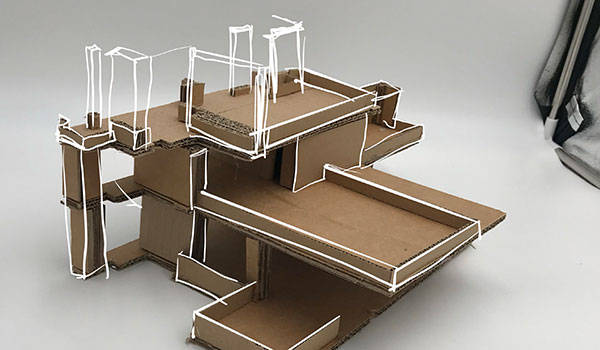
Portfolio guidance
Students apply to the Lancaster School of Architecture with a variety of skills: it is not always the case that applicants have studied Art or Design at A-level or GCSE for example, nor is this necessary.
Please refer to the Lancaster School of Architecture portfolio guidance document.
An inspiring environment
Lancaster has invested over £500m in its modern campus since 2003, with a further £400m planned in the next five years. The University has many award-winning buildings and a commitment to sustainability. From our student eco-residences to our new Health Innovation Campus, you will find inspiring architecture all around you.
-
Specialist facilities
Specialist facilities include workshops, studios and technology labs

-
City of Lancaster
Lancaster is an ancient city with a modern outlook, and a fascinating story to tell



